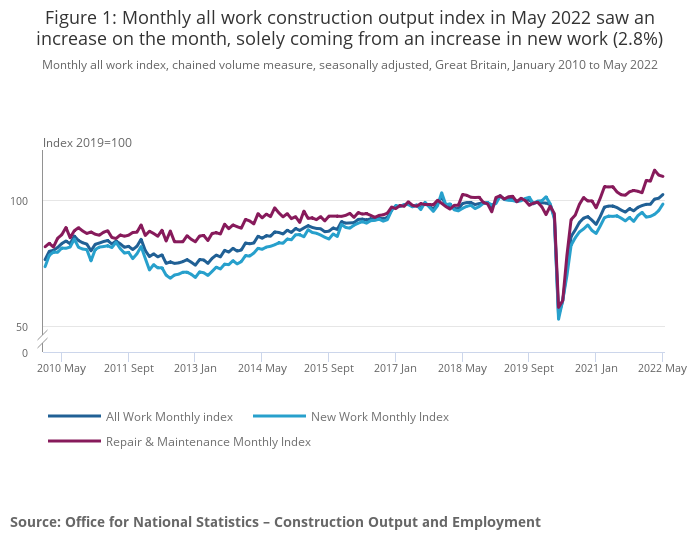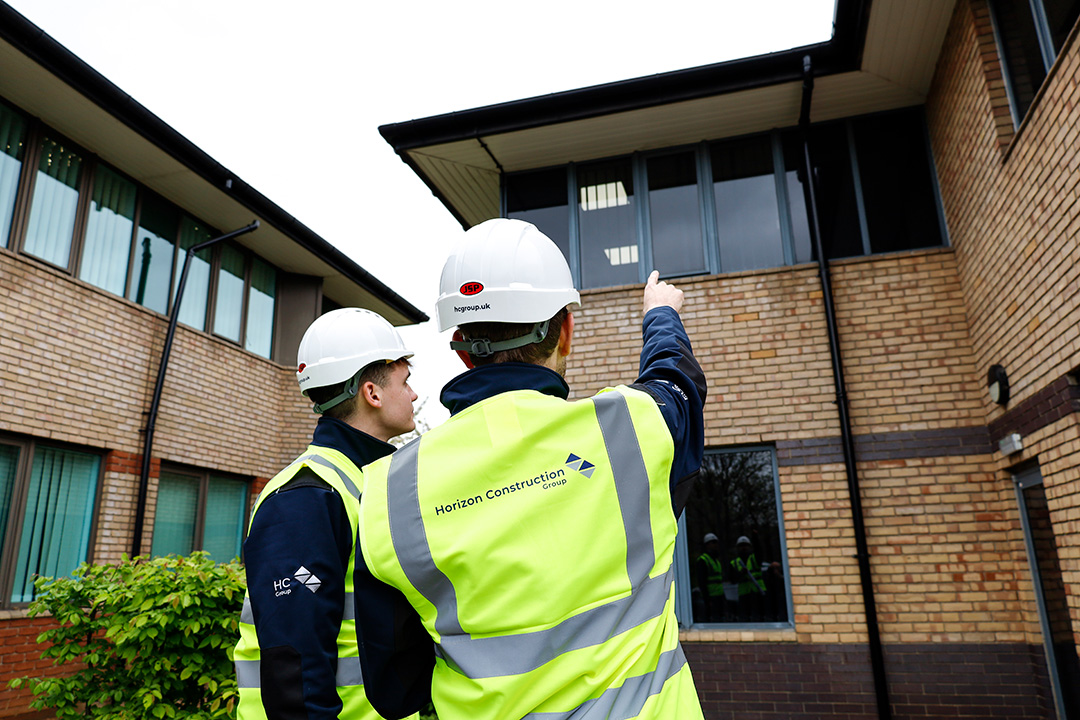We all know we live and work in one of, if not the best counties and regions of England. Our construction industry plays a central part in delivering and maintaining the environment we love and wish to live in.
“Building back better”, a slogan used by the Government in recent times could not be more appropriate for the region’s industry following the impact of COVID on people’s lives and livelihoods. If we have learnt anything from the last two years, our relationships with people, including how we conduct ourselves, are ever more important. This also applies to how businesses are developing and forging new relationships; working together to create innovative solutions to fulfil aspirations of living in a more sustainable and healthier climate. Therefore, the performance of our region’s construction industry directly impacts the place we like to call “home”.
Colchester-based Horizon Construction believes there are now encouraging trends in Essex’s construction environment. As background, according to the Office of National Statistics, the UK construction industry has been experiencing renewed and continuous growth since November 2021; rebounding strongly since the decline following the COVID pandemic. May 2022 recorded the highest monthly industry growth since records started in January 2010. More recently, the private commercial sector has been the main contributor to industry growth. New work has been at its strongest since June 2021 and the growth index is back to a pre-pandemic level.

Essex County Council’s 20-year growth strategy for the county’s construction industry (published in April 2020) described Essex as a “large and mature construction sector, generating £4.7bn per annum in Gross Value Added and making a net contribution to wider regional growth beyond its boundaries.” It anticipated the pipeline of construction activity in the county in the next 20 years as “significant”.
Horizon Construction has experienced a record number of new business enquiries since the end of 2021 across its sectors (automotive, commercial, education, healthcare and residential). A growing representation of these are either from Essex-based developers or those wishing to build for the first time in the region. It has also emphasized growing its network of quality local businesses that can provide specialist trades, skills and supplies.
Phil Holding, managing director at Horizon Construction, said: “We are noticing a real gear change of interest in Essex. As a Colchester-based construction firm, we are suitably positioned to deliver solutions within the region, so therefore, looking towards suitable local businesses involved in construction to ably assist us.
“Essex is an attractive location for developers. The reasons include its location and access links to London and surrounding counties, wider transport links such as air and sea/commercial ports, its demographics, and opportunities in under-fulfilled services for specific consumer groups, such as housing and healthcare.
“At the start of this year, a leading care home provider in the UK asked us to deliver their first care home in Essex (Braintree). We are aware of another healthcare client that is actively seeking a suitable location for their next and first care home in Essex. Furthermore, our team is in the early stages of commencing work on our largest residential scheme (£18m) in Wickford to create affordable and sustainable housing. This project will also comply with the client’s employment directive of using at least 50% of local subcontractors (within 20-mile radius).”
The construction industry in Essex has a large base of skilled and specialist trades, and ONS data (2019) shows the region has a significantly higher proportion of skilled trades than the national average. The overall size of the industry (in terms of jobs) has remained fairly consistent since 2004, fluctuating between circa 60,000 to 80,000 jobs – one of the largest pools of construction workers compared to surrounding counties. Data is still being gathered to access the impact of COVID and Brexit on the current level of jobs but the number of “micro” businesses (less than 10 staff) has been growing over recent years.
The worldwide shortage of essential construction materials during 2020-21 produced many complications for businesses involved in construction. Price increases dramatically impacted project programmes and budgets. Planned projects were typically cancelled or postponed. So, factoring in the cost of COVID, the end of Government support, and the high cost of materials, construction firms are now tackling financial challenges. There was a 142% increase in insolvencies in the construction sector in February when compared to the same month last year (source: Insolvency Service). Therefore, it is not surprising to see firms over the last 12 months building better relationships with their supply chain to ascertain more certainty and trust in operations.
Phil commented: “There are huge benefits of working with local construction businesses, which is not a new phenomenon, but now has growing importance due to recent events. Horizon Construction has placed this importance as a core strategy in the business. Alex Scarfe, a commercial consultant for the firm, has been part of building a strong base of local relationships with businesses. We are also looking forward to inviting local businesses to our next Construction and Property event in October.”
The future is bright for the region’s construction activity to provide solutions to the communities, organisations and environment it serves. Construction firms have been fundamentally changed following recent events, however, there will always be one constant, which is construction will remain a relationship business.
This article was published in the “BusinessTime in Essex” publication, Autumn 2022 edition.




